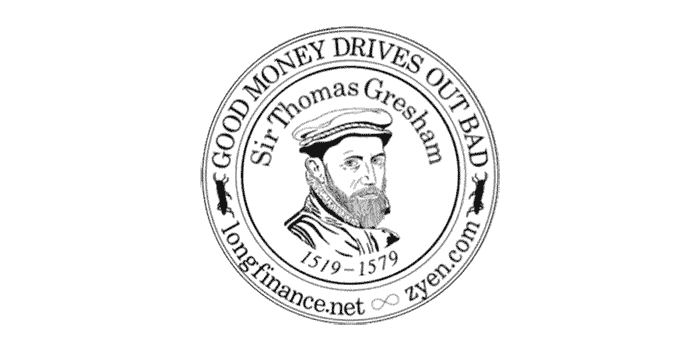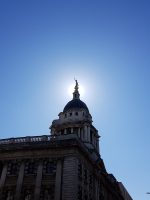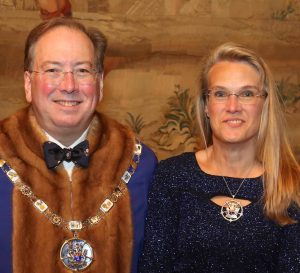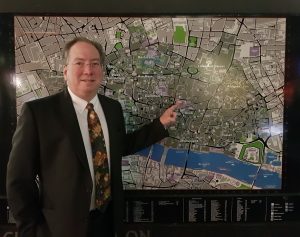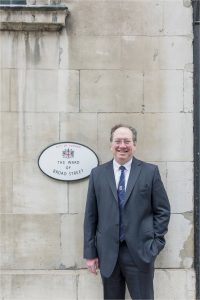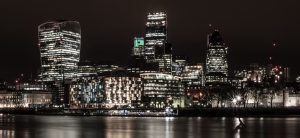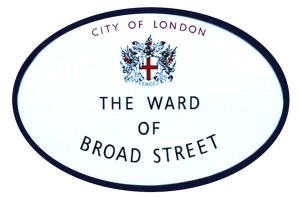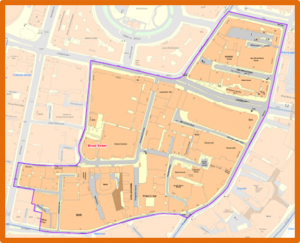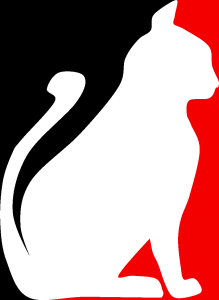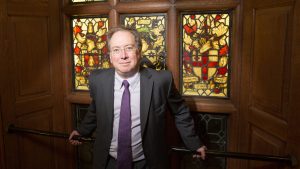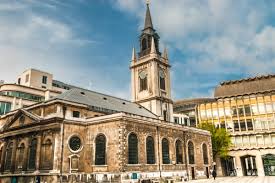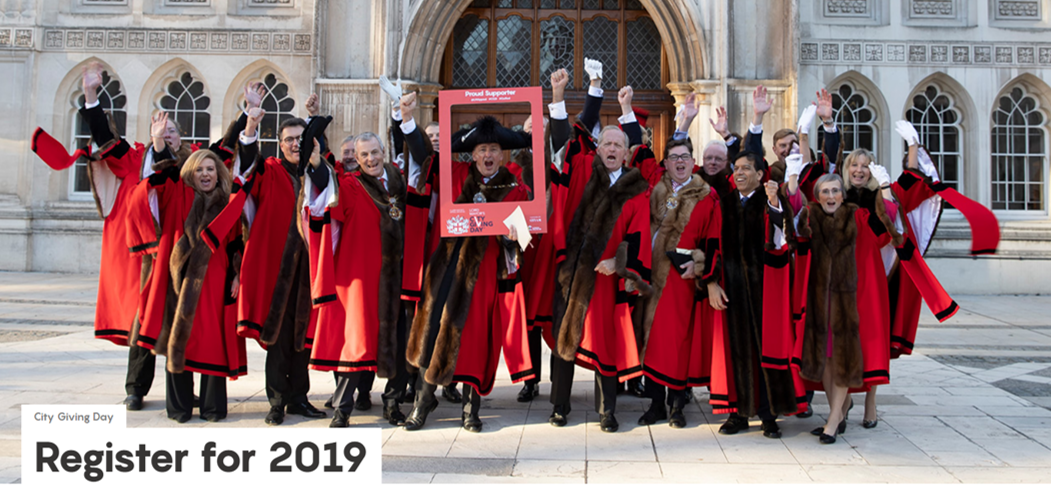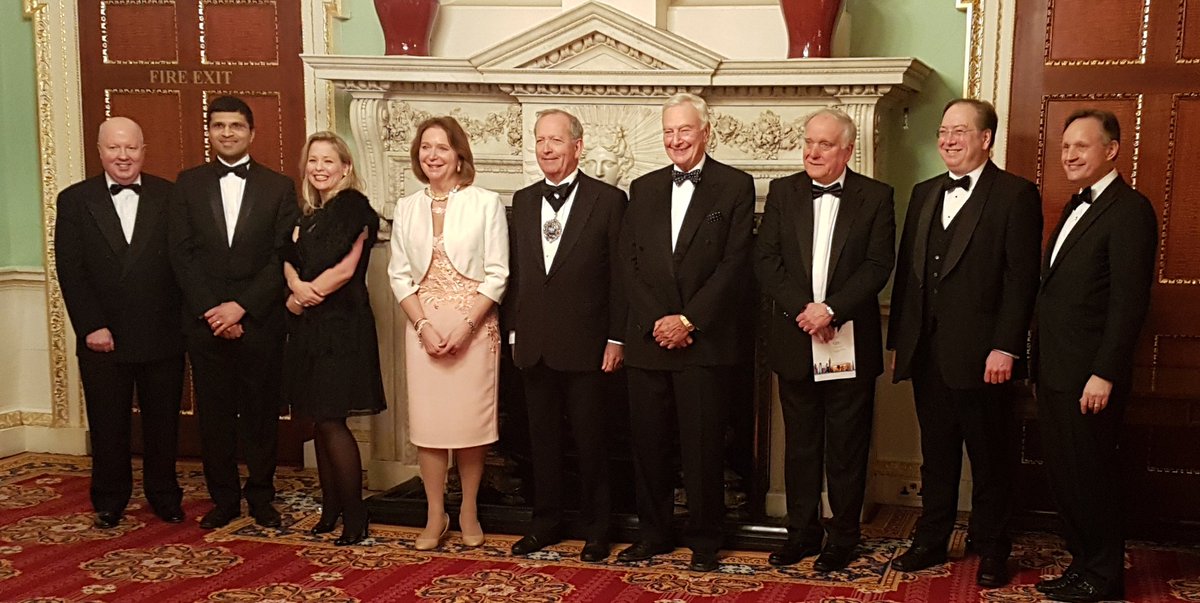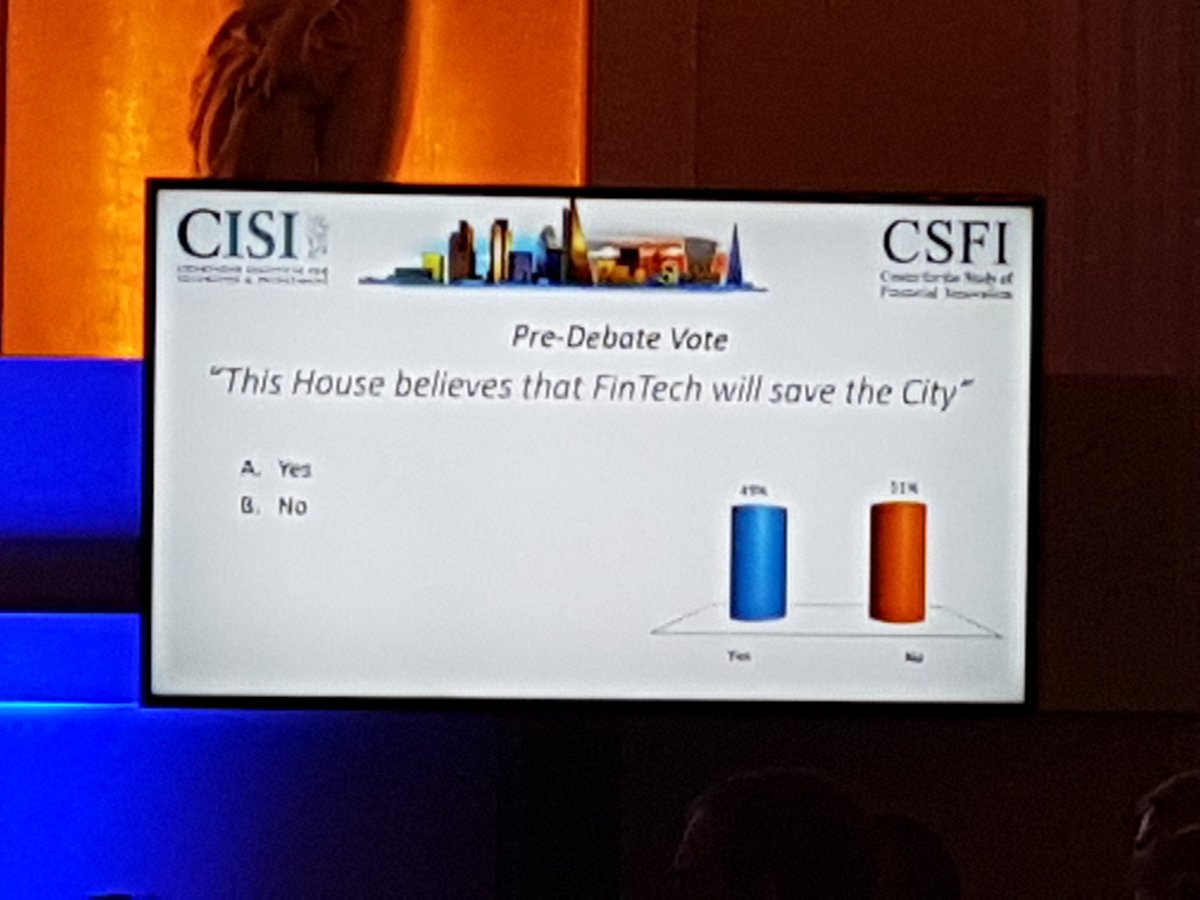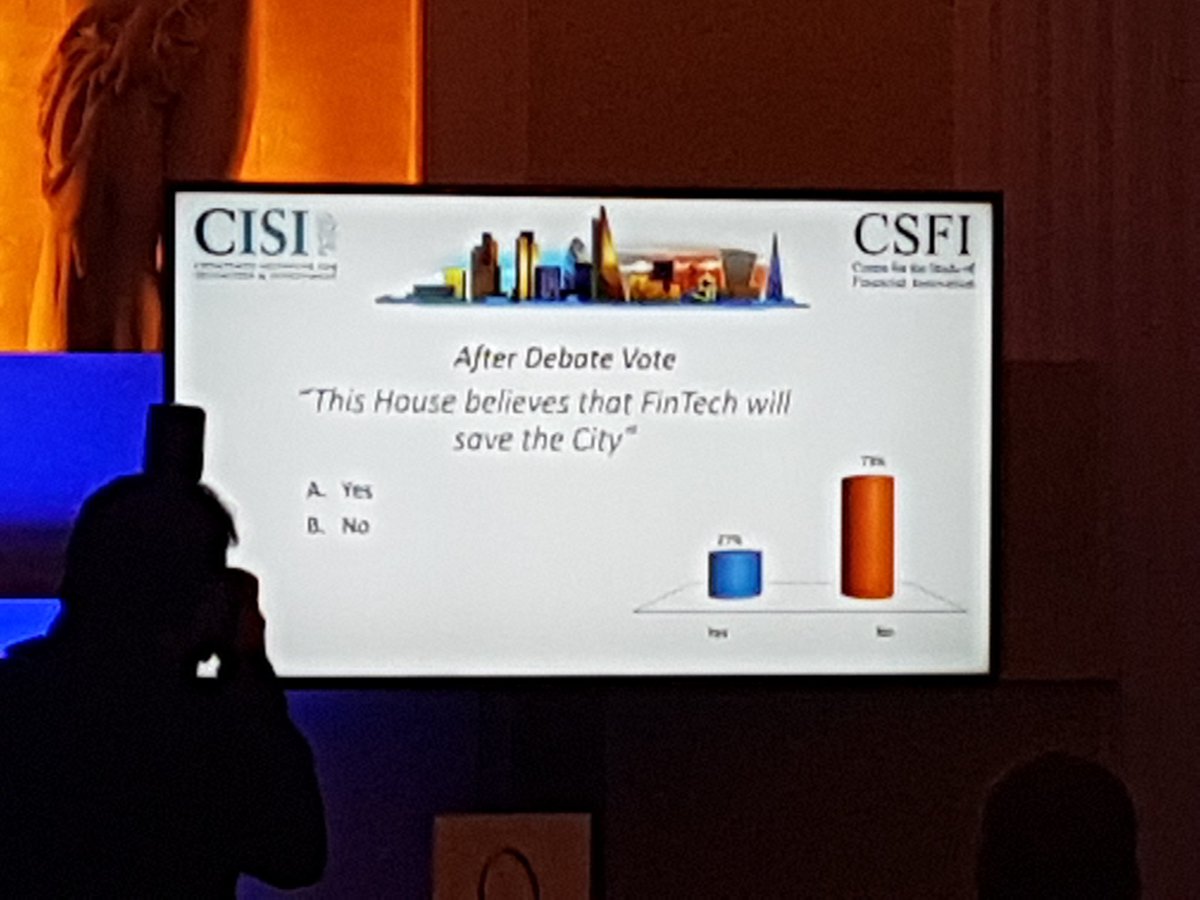With our promotion of Dr John Guy’s excellent biography, “Gresham’s Law: The Life & World Of Queen Elizabeth I’s Banker“, we get flak from time to time for saying that Gresham’s Law is best expressed as “good money drives out bad”.
Continue readingThe City of London & Broad Street Ward
“Bright Lights, Open Minds, Robust Community”
New Sheriff In Town? It Would Be An Honour.
I am pleased to announce that I received notification on Friday, 15 March, that my nomination for the Election of Sheriffs at Common Hall at Guildhall, Monday 24 June 2019 has been checked. It is all in order and I am a validly nominated candidate.
Thus, today, 17 March 2019, I open my campaign to be Aldermanic Sheriff for 2019/2020.
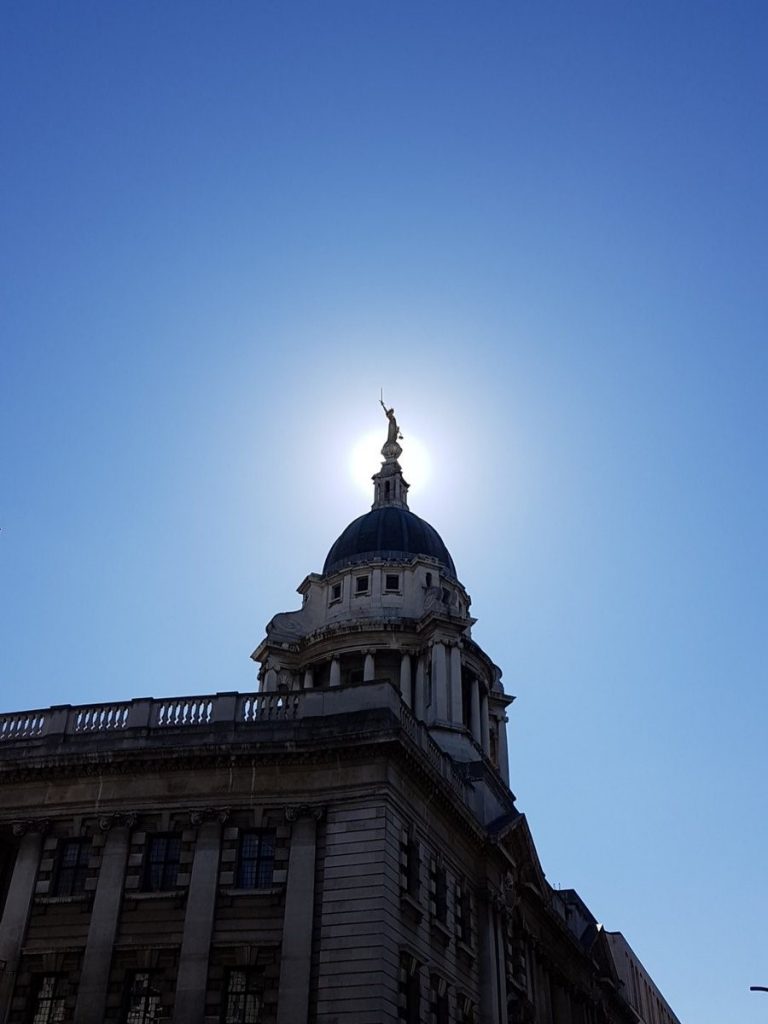
Declaring My Candidature For Sheriff Of The City Of London 2019/2020 –
17 March 2019
Election of Sheriffs for the City of London – Monday, 24th June 2019
Candidature of Alderman Professor Michael Mainelli FCCA Chartered FCSI(Hon) FBCS
To the Liverymen of the City of London
My Lords, Ladies and Gentlemen,
Common Hall
With a sense of honour and enthusiasm, I offer myself to the Livery for election at Common Hall to be held at Guildhall on Monday, 24th June, at 12 noon. My colleagues on the Court of Aldermen support my candicacy, as they did last year, as their candidate for the ancient office of Sheriff of the City of London for 2019/20. If a poll is demanded, I would like to ask for your support by voting in my favour at the ballot on Monday, 8th July 2019, also at Guildhall.
Continue reading2018 Aldermanic Campaign Closes
I was delighted to receive the following “Statement of Persons Nominated” from Guildhall just after noon today. This means that the campaign is now closed with one candidate, unopposed. I would like to thank all of my supporters, but particularly my election agent and my five nominators:
- Election Agent – Ms Ruby Sayed (Barrister), Temple
- Proposer – Mr Nicholas Westgarth, Worshipful Company of International Bankers, Austin Friars
- Seconder – Mr Karl Craig, Canaccord Genuity, Lothbury
- Subscriber – Ms Mei Sim Lai OBE, Lai Peters, New Broad Street
- Subscriber – Mr Roger Sanders OBE, Lighthouse Group, Throgmorton Street
- Subscriber – Ms Elizabeth Corrin, China Construction Bank, Old Broad Street
I would also like to thank numerous voters in the Ward for their kind message, the many supporters at Broad Street Ward Club’s annual luncheon yesterday, and the kind messages online via LinkedIn and Twitter. I shall do my best to serve the Ward over the next six years, along with the civic team who generously gave their unreserved support:
- Deputy John Bennett
- Chief Commoner John Scott JP
- Chris Hayward CC
We want to continue trying to deliver more by Working for the City, Working for the Ward, Working for You.
There will still be a Wardmote at noon on Wednesday, 12 December, though no election on 13 December, at Carpenters’ Hall, 1 Throgmorton Avenue, London EC2N 2JJ. All are welcome to attend the installation on 12 December. Feel free to let me know if you’re coming.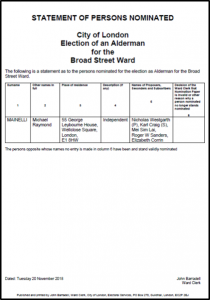
2018 Campaign – Alderman Professor Michael Mainelli
Re-Elect Professor Michael Mainelli for Alderman of Broad Street Ward
“Bright Lights, Better City”
My campaign motto highlights the City’s brainpower, attractions, and traditional freedoms.
I am honoured to have the support of our three Common Councilmen, Deputy John Bennett, Chief Commoner John Scott JP, and Chris Hayward.
A former Chairman (2004-2005) of the Broad Street Ward Club, Immediate Past Master of the Worshipful Company of World Traders, Freeman of the Watermen & Lightermen, and an Honorary Liveryman of the Furniture Makers and Water Conservators, Michael has worked in the Ward since 1984, walking the length of the Ward every day to and from home in Wapping.
“Michael has achieved much in his first term as Alderman, working hard and well with our Civic Team. We urge you to return him to work with us in the future.”
Chief Commoner John Scott JP
Please give me, Michael Mainelli, your vote by postal ballot or by voting in person on
Thursday, 13 December 2018
Polling Station
Carpenters’ Hall, 1 Throgmorton Avenue,
London EC2N 2JJ
Polls are open from 8:00am to 8:00pm
The pre-election Wardmote will be held at Carpenter’s Hall at midday on Wednesday, 12 December 2018
www.broadstreetward.org.uk
@broadstreetward
I walk through the Ward every day, to and from work, and would be delighted to discuss Ward business.
Contact me by telephone 020 7562-9562, or via email michael_mainelli@zyen.com, or by post to Z/Yen Group, 41 Lothbury, London EC2R 7HG. For more campaign details see www.mainelli.org and @mrmainelli.
Aldermen and Common Councilmen are the unpaid volunteers who keep our community working. In tough times for the City, with fierce international competition among financial centres, increasing uncertainty in financial services, more regulation, rising costs, and tight budgets, these volunteers are vital.
As the creator of the Global Financial Centres Index, I know what makes cities work. Together we can make a success of our neighbourhood with a manifesto of:
- safe streets – traditional policing, crime prevention, refuse collection, lighting, sensible licensing, and traffic enforcement;
- modern infrastructure – water, electricity, ICT, and transportation links with robust defences against environmental damage and terrorism;
- vibrant economy – fostering new and old businesses by setting policy and regulation that encourage new markets in the City and future success for the 483,000 of us already working here;
- community spirit – ensuring excellent services for those in need, while enhancing intellectual and cultural life;
- competitive attractiveness – lobbying central government on better policies for education, taxation, and business, as well as promotion, to keep the City foremost in global finance, technology, and media.
We have made great progress in Broad Street Ward in three major areas:
- Refurbishment and all-but-pedestrianisation of Austin Friars – completed on budget and on time. We have plans for more social and community activities in this area. Please do look out next year for a street market.
- On-site shredder vans – an outright ban seems a ways off, but we have reduced these vehicles to almost the minimum.
- Communications – we now have high-speed broadband throughout the City and our website is in its fifth year. @broadstreetward tries to ‘follow’ all businesses and people in the Ward, so please do ‘follow’ us by return!
Broad Street’s traditional mascot is the famous panto cat of its Alderman, Dick Whittingon (1354-1423).
My work on your behalf over the past five years has consisted of:
- Ambassadorial – representing the City and Ward, including accompanying and receiving trade and investment delegations to and from Asia, Europe, the Americas, Africa, and Australasia. A number of businesses in finance and technology have located operations here thanks to such efforts.
- Governance – promoting our interests in the Corporation as a member of the Court of Aldermen and Common Council, as well as Finance, Markets, Planning & Transportation, Standards, and Gresham Committees.
- Ward Support – helping develop our City Giving Day contributions and Ward Mights, presenting in companies and schools, organising tours of the Ward, promoting new Freemen (ask if you’d like to become one), as well as being President of Broad Street Ward Club.
Professor Michael Mainelli FCCA FCSI (Hon) FBCS, Executive Chairman, Z/Yen Group
A qualified accountant, securities professional, computer specialist, and management consultant, educated at Harvard University and Trinity College Dublin, Michael gained his PhD at London School of Economics where he was also a Visiting Professor. He began his career as a research scientist, later becoming an accountancy-firm partner with BDO Binder Hamlyn and a director of Ministry of Defence research. During a spell in merchant banking with Deutsche Morgan Grenfell, he co-founded Z/Yen, the City of London’s leading commercial think-tank. He has led Z/Yen from creating smart ledgers (aka blockchains) through the Financial £aboratory, Taskforce 2000, Global Financial Centres Index, Global Green Finance Index, and Global Intellectual Property Index.
In 2005, Michael initiated Long Finance’s London Accord, an agreement among 65 investment research teams to work together on environmental, social, and governance issues, which includes Ward firms such as Canaccord Genuity, ING, and Deutsche Bank. Michael’s civic work includes serving as Emeritus Professor of Commerce, Fellow & Trustee at Gresham College – the City’s ‘Tudor Open University’; Almoner (governor) for Christ’s Hospital – the City’s charitable boarding school; Trustee of Morden College; former London Waterways Commissioner; and Patron to several charities, such as CARA and Sea-Change Sailing Trust.
Michael is a non-executive director of two listed firms and the United Kingdom Accreditation Services overseeing UK laboratories and quality standards. He was British Computer Society Director of the Year in 2005 and given Hons by the Chartered Institute for Securities & Investment in 2018. His third book, The Price of Fish: A New Approach to Wicked Economics and Better Decisions, won the 2012 Independent Publisher Book Awards Finance, Investment & Economics Gold Prize.
Promoted by Ms Ruby Sayed CC, One Pump Court Chambers, Elm Court, Temple, London EC4Y 7AH,
on behalf of Professor Michael Mainelli, Z/Yen Group Limited, 41 Lothbury, London EC2R 7HG.
2018 Aldermanic Campaign Begins
It is customary for Aldermen to give an undertaking to surrender their office at least every six years. Elected in July 2013, I have taken the opportunity, in advance of running for Sheriff next year, to submit my resignation of office to the Court of Aldermen on 9 November. At the same time, I also indicated my intention to seek re-election. I submitted my nomination papers to the City of London Corporation on 16 November. If the election is contested, it shall be held on 13 December.
I would like to thank profusely for their support of my nomination:
- Proposer – Mr Nicholas Westgarth, Worshipful Company of International Bankers, Austin Friars
- Seconder – Mr Karl Craig, Canaccord Genuity, Lothbury
- Subscriber – Ms Mei Sim Lai OBE, Lai Peters, New Broad Street
- Subscriber – Mr Roger Sanders OBE, Lighthouse Group, Throgmorton Street
- Subscriber – Ms Elizabeth Corrin, China Construction Bank, Old Broad Street
- Election Agent – Ms Ruby Sayed (Barrister), Temple
Divine Service Prior To The Election Of The Lord Mayor
1 October 2018 at 10:45 – This service is held at St Lawrence Jewry, the official church of the Corporation of London. It precedes the election of the Lord Mayor and is attended by the Masters of the livery companies.
I’ve always been politely amused by the touching adaption of a well-known hymn for the City:
O Praise ye the Lord, fraternities all,
With each patron saint, with Lawrence and Paul,
Praise God in this City, in his name we strive,
And pray for our liveries, long may they survive.
O Masters of guilds, in livery adorned,
Your mysteries keep and strive to be formed
In charity, service, and care for the poor,
Bring God his due honour, and praise Him the more.
Prepare ye to serve, all Aldermen too,
In each of your tasks be faithful and true;
With eye to the Father, and ear on your ward
With all this City, O praise ye the Lord!
This year’s Lesson and Sermon were taken from Luke 16:1-9:
The Unjust Steward
1And he said also unto his disciples, There was a certain rich man, which had a steward; and the same was accused unto him that he had wasted his goods. 2And he called him, and said unto him, How is it that I hear this of thee? give an account of thy stewardship; for thou mayest be no longer steward. 3Then the steward said within himself, What shall I do? for my lord taketh away from me the stewardship: I cannot dig; to beg I am ashamed. 4I am resolved what to do, that, when I am put out of the stewardship, they may receive me into their houses. 5So he called every one of his lord’s debtors unto him, and said unto the first, How much owest thou unto my lord? 6And he said, An hundred measures of oil. And he said unto him, Take thy bill, and sit down quickly, and write fifty. 7Then said he to another, And how much owest thou? And he said, An hundred measures of wheat. And he said unto him, Take thy bill, and write fourscore. 8And the lord commended the unjust steward, because he had done wisely: for the children of this world are in their generation wiser than the children of light. 9And I say unto you, Make to yourselves friends of the mammon of unrighteousness; that, when ye fail, they may receive you into everlasting habitations.
For some of us, it seemed too a propos a lesson on ‘client monies’.
City Giving Day Role Of Honour
Congratulations to all those organisations in the Ward who participated!
City Giving Day Role Of Honour
- Ambac
- Blackrock Investment Management (UK) Limited
- Broad Street Ward Club
- Canaccord Genuity Wealth
- China Construction Bank London
- Deutsche Bank
- Fireclad Ltd
- Gianni, Origoni, Grippo, Cappelli & Partners
- Guild of Freemen
- ING Bank
- IoD City of London
- The Brokerage Citylink
- The Worshipful Company of Carpenters
- The Worshipful Company of Drapers
- Union Bank UK plc
- Z/Yen Group Limited
BROAD STREET WARD – CITY OF LONDON – VOTER UPDATE
To the Ward of Broad Street,
As Alderman for your Ward, I thought I would write and bring you up-to-date with news.
First, you should be receiving our Broad Street Ward Newsletter every six months. If not, or you would like to receive it electronically, please do contact me.
Second, I enclose a few items which might be of interest:
- Our Ward business card;
- A postal ballot form if you would like to ‘vote the easy way’;
- A printout of our Ward website to remind you where to find or post local information, and the Broad Street Ward Club website to remind you that you’re welcome to join – your members, Deputy John Bennett, John Scott CC, Chris Hayward CC, and I, would be delighted to sponsor you.
Third, we have made great progress in Broad Street Ward in three major areas:
- Refurbishment and all-but-pedestrianisation of Austin Friars. This project was completed, on budget, and on time. We have plans for more social and community activities in this area. Please do look out for a Ward Might later in the year, basically an open house in the centre of the Ward one lunchtime. Also look out next year for a street market.
- On-site shredder vans. An outright ban seems a ways off, but we have reduced these vehicles to almost the minimum. If you spot a particular offender, i.e., idling or unattended in a restricted parking area, please do feel free to photograph them and send to me.
- We are proud of the website, now in its fifth year. We also have a twitter account @broadstreetward. We are trying to ‘follow’ all businesses and people in the Ward, so please do ‘follow’ us by return!
Two further opportunities that might interest you:
- City & Ward Overview. Your members are always ready to come to offices in the Ward to explain the City of London, the history, livery companies, wards, philanthropy, and local services. We have a presentation, “What Could The ‘City of London’ Ever Do For Me? Or How Can I Drive Sheep Across London Bridge?” we’d be delighted to give to you and your colleagues if you wish. The presentation also covers how to apply for the Freedom of the City of London, again, something where your members, Deputy John Bennett, John Scott CC, Chris Hayward CC, and I, would be delighted to sponsor voters. Equally, for a large party, we would be happy to host you at the Guildhall for such a presentation, along with a short tour. To request a City & Ward Overview, just email me at michael_mainelli@zyen.com.
- City Giving Day is taking place on 25 September 2018. It’s one day in the year when businesses can unite to celebrate and showcase their charitable and volunteering efforts with employees, clients, suppliers and the public. It is about celebrating what you already do – not asking you for money. To register, just go to thelordmayorsappeal.org/a-fair-city/city-giving-day.
May I take this opportunity to thank you for your support. Your members are always open to ideas for change and improvement. It’s our honour to serve you. We want to continue trying to deliver more by Working for the City, Working for the Ward, Working for You.
Sincerely yours,
Alderman Professor Michael Mainelli, Executive Chairman, Z/Yen Group
It’s Not All About Winning, Unless You Win
I had a wonderful time at the City Debate last night, Tuesday, 6 March. Here’s a photo of all of us at the start:
CSFI & CISI City Debate:
- Antony Jenkins (10x)
- Nikhil Rathi (London Stock Exchange)
- Michael Mainelli (Z/Yen)
- Ruth Wandhöfer (Citi)
You can spot Ruth on the left, with Angela Knight in the centre who chaired proceedings, and Alderman Alan Yarrow both as Chairman of CISI and as Lord Mayor Locum Tenens. The pre-debate vote was neck-and-neck, 51% “no” (Antony and my side) and 49% “yes” (Ruth and Nikhil’s side).
From the questions it appeared a hostile audience to Antony and me. I had that queasy feeling you don’t like when you’ve volunteered for a competition just for the fun of it, then suddenly realise you could lose in front of all your friends. How can one’s self-esteem ever recover?
Now you can see me in full ‘must win’ mode, or as my friend George Littlejohn would have it – “Michael could be up for playing Churchill come the next biopic.”
Thus it was a genuine surprise, and relief, to find that we moved the audience significantly to our side, 73% to 27%. Whew.
In case my position had anything to do with swaying opinion, I set out the case against, below:
“This House Believes That Fintech Will Save The City” (NOT)
Lord Mayor Locum Tenens, Your Excellencies, Fellow Aldermen, Distinguished Guests, Ladies and Gentlemen.
You heard Antony’s compelling words. My argument balances his. If Fintech doesn’t destroy you, then … Fintech will remain, a small comfortable parasite on the technology and trade centre that is our global City. So what is the City, what is Fintech, what needs saving?
Yesterday, the Inspector of Ancient Monuments assured me that London’s archaeological evidence proves over 100,000 years of trading. I ask you, many of you too also ancient monuments before me, to join together and take a long-term perspective. Bloomberg across the road sits above two millennia of Londinium. We convene over a millennium old stocks market. Gresham’s Royal Exchange opposite is over 450 years old.
With the tragic exception of Edward I’s expulsion of the Jews in 1290, what distinguishes London is that, by comparison, it has treated all comers from outside the walls fairly, so long as they adhere to “meum fidem, meum pactum”. Lombards, Huguenots, Rothschilds, Warburgs … Mainellis.
We are an SME City. 24,000 businesses provide 483,000 jobs in the square mile, with 1,200 more each year. Yes, 250 firms provide 50% of the jobs, but they work with 23,750 deal-making SMEs. Large and small produce 3% of UK GVA from less than 1.5% of the workforce, three quarters of the UK’s services trade surplus, some £68bn.
Urban legends mislead us. The City was a deal centre before and after WWI, but was a feeble financial centre from 1939. The finance legend was kept alive by Italians and Americans, Autostrade in 1963 creating Eurobond markets on neutral territory. When Thatcher lifted exchange controls in 1979 and Big Bang broke cartels, financial services boomed. Most of today’s behemoths were SMEs 30 years ago. Bloomberg dates to just 1981.
You’ve heard of a Baker’s Dozen, 13? I recently learned that a Banker’s Dozen is 11. Just seven banks, not even 11, gets you to over 95% UK market share. Cartels remain. Domestic banks pursue a decades old, yet rational, strategy of hampering account switching. If you want to be a success in retail Fintech, go to a country with over a thousand banks, Germany, or over six thousand banks, America. Make some marketing director’s career rather than annoy a UK bank strategist.
Our retail fintech story is government lies for children, baubles with no Christmas tree:
- M-Pesa in Kenya dates to 2007, eight years before the UK notices Fintech.
- Retail Fintech kids unable to afford desks sit in Level 39 beside the compliance & admin battery hens of Canary Wharf, while Berlin, a quarter our size and not a global financial centre, raises more Fintech finance than we do.
- China has 13 Fintech unicorns to our four. Even that requires forward-dating things like WorldPay, 1995, just to fake our numbers up.
Then we put our regulator in charge of a sandbox, letting government bottlenecks choose our winners. Any country whose regulator is in charge of innovation has deep problems. The wider City is lawyers, accountants, maritime, insurers, not a fintech pimple.
Google Trends awards the term ‘Fintech’ around 100 points. In January 2015 it was an insignificant six points. Our government claims creation of a sector it didn’t even notice four years ago, putting some mobile app lipstick on the antiquated systems of some oligopolistic banks.
I came to the City in 1984 to put computer technology into Messels, then Shearson-Lehman-Amex. We old-timers should celebrate the progress of automating wholesale finance. We’ve been doing real Fintech long before this insulting term was mashed up. It’s as facile as saying your heartbeat keeps you from dying.
London is a science & tech city. From Tudor ‘New Learning’ to Gresham College, Francis Bacon, the Royal Society, Industrial Revolution, Wheatstone telegraph, or DNA (the work was done at Kings, not Cambridge), London has been at least as much about science & tech trade as it has been about finance. Technology-Media-Telecomms is a significantly larger percentage of firms under 100 employees than finance, insurance, or professional services. Our centuries of tech drive regtech, instech, arttech, filmtech, songtech, medtech, edtech, traveltech.
Finance moves with technology too, from cuneiform to papyri to tally sticks to spreadsheets to databases and now databases-plus, smart or distributed ledgers, blockchains. But smart ledgers are ‘wide tech’ for identity, documentation, and agreement exchanges, not just payments. Tech is for all sectors and the City of London is the most intense place on the planet to do tech deals.
So does the City need saving from Brexit, the wider UK, perhaps AI? To paraphrase Streisand, “people who need to trade with people, make London the luckiest City in the world”. As long as we focus on face-to-face, commercial, global deal-making that AI and telecoms can’t replace, deal support will thrive, from financial and professional services to hotels, culture, healthcare, or entertainment.
With or without Brexit, we need quality education and training, health, infrastructure, broadband; airports (plural); an in-visa-ble as possible access to people; a functioning housing market; a simple tax system. If Britain is open for business, try opening a bank account. What always needs saving is the rule of law, innovation, and open deal-making. We are deficient, but not desperate; in danger of having our Emperor’s clothes disrobed, but with time to knit some new garments.
In conclusion, profound changes would be needed to even start to be a standalone Fintech centre. Silicon Valley, in total, is still only half the size of London. Fintech propaganda hides three decades of wholesale finance automation. Our real strength is over 500 years of wider technology and open trade. Sell Trade in Tech not Fintech.
So, do you vote for deep tech or mobile gimmicks, do you vote for City deals or for Canary Wharf turkeys, do you vote for people or machines? Our centuries of success are built on growing SMEs in open, global trade, not some three year old government mashup. Please vote for yourselves, the deal-makers of London, not this facile motion.
References

